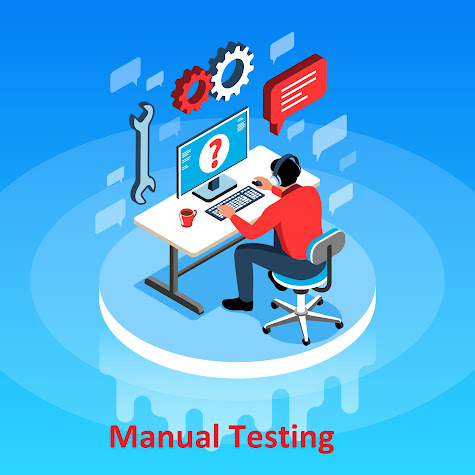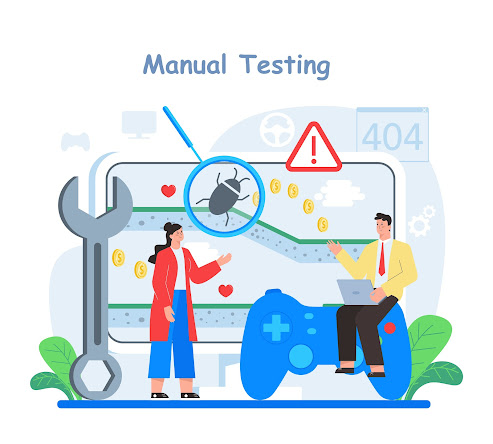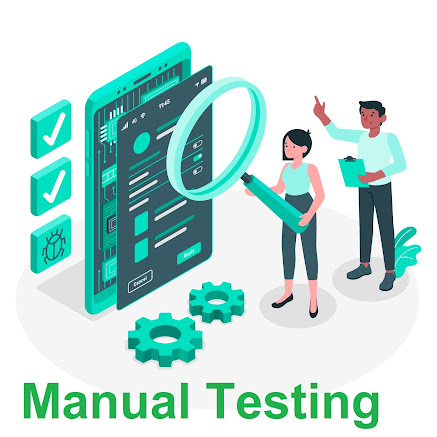Manual Testing Institute in Noida
Introduction
Manual testing is a crucial part of the software development lifecycle, ensuring that software applications meet quality standards and deliver a seamless user experience. Unlike automated testing, which uses scripts and tools to execute test cases, manual testing relies on human testers to explore the software's functionality, usability, and performance. Manual testers simulate end-user interactions with the software, identifying defects and reporting them for resolution. This hands-on approach allows testers to apply their judgment and creativity to uncover issues that automated tests may overlook. Manual testing is particularly valuable for agile development teams, as it enables quick adaptation to changing requirements and immediate feedback on new features. Overall, manual testing plays a vital role in ensuring the reliability and functionality of software applications in a variety of environments.
What is Manual Testing?
Manual testing is a software testing technique where testers manually execute test cases without using any automation tools. In manual testing, testers simulate end-user scenarios to ensure that the software behaves as expected under various conditions. It involves verifying and validating all aspects of the software application, including functionality, usability, performance, and security.
Here's an overview of the key aspects of manual testing:
- Test Case Design: Testers design test cases based on software requirements and specifications. These test cases outline the steps to be executed, the expected results, and any preconditions or postconditions.
- Test Execution: Testers manually execute the test cases, following the steps outlined in the test case documents. They interact with the software application as an end user would, inputting data, performing actions, and verifying outputs.
- Defect Reporting: During test execution, testers identify defects or issues in the software application. They report these defects using defect tracking tools, providing detailed information about the issue, including steps to reproduce, environment details, and severity.
- Defect Retesting: Once defects are fixed by developers, testers retest the affected areas to ensure that the issues have been resolved satisfactorily. They verify that the software behaves as expected after the fixes are applied.
- Regression Testing: Testers also perform regression testing to ensure that new changes or fixes do not introduce new defects or impact existing functionality adversely. They retest previously tested features to validate their stability.
Manual testing offers several advantages, including:
- Human Judgment: Testers can apply human judgment and intuition to explore different aspects of the software, identifying potential issues that may not be caught by automated tests.
- Adaptability: Manual testing allows testers to adapt quickly to changes in requirements or project scope, making it suitable for agile development environments.
- Exploratory Testing: Testers can perform exploratory testing to uncover unexpected behavior or usability issues that may not be covered by predefined test cases.
While manual testing is essential for ensuring the quality of software applications, it can be time-consuming and resource-intensive, especially for large-scale projects. As a result, organizations often complement manual testing with automated testing to achieve better test coverage and efficiency.
Why Choose APTRON Solutions for Manual Testing Institute in Noida?
At APTRON Solutions, we offer a comprehensive Manual Testing Institute in Noida that equips students with the necessary skills and knowledge to excel in manual testing. Here's why you should choose us:
- Expert Trainers: Our trainers are industry experts with years of experience in manual testing. They provide hands-on training and real-world examples to ensure that students understand the concepts thoroughly.
- Comprehensive Curriculum: Our Manual Testing course covers all the essential topics, including manual testing fundamentals, test case design, test execution, and defect management. We also cover advanced topics like automation tools integration.
- Practical Training: We believe in learning by doing. That's why our course includes extensive practical sessions where students work on real projects to gain practical experience.
- Placement Assistance: APTRON Solutions has a dedicated placement cell that helps students secure job placements after completing the course. We have tie-ups with leading companies that regularly recruit our students.
- Industry-Recognized Certification: Upon successful completion of the course, students receive a certification that is recognized by the industry. This certification validates their skills and enhances their job prospects.
Manual Testing Course Highlights at APTRON Solutions
- Duration: Our Manual Testing course is designed to be completed in [duration] weeks/months, providing a thorough understanding of manual testing concepts.
- Batch Flexibility: We offer flexible batch timings to accommodate students' schedules, including weekend batches for working professionals.
- Hands-on Projects: Students get the opportunity to work on real-time projects, gaining practical experience in manual testing.
- Placement Support: Our placement cell assists students in securing job placements after course completion, including resume preparation and interview guidance.
- Certification: Students receive a certification upon successful completion of the course, enhancing their credibility in the job market.
Advanced Curriculum for Manual Testing Course at APTRON Solutions
Our Manual Testing Institute in Noida offers a comprehensive curriculum that covers both basic and advanced topics in manual testing. Here's a glimpse of what you'll learn:
- Manual Testing Fundamentals: Understand the basics of manual testing, including principles, types of testing, and testing techniques.
- Test Case Design: Learn how to design effective test cases that cover all aspects of the software under test.
- Test Execution: Gain hands-on experience in executing test cases, reporting defects, and retesting fixed defects.
- Defect Management: Learn how to manage defects effectively, including defect tracking, reporting, and resolution.
- Automation Tools Integration: Understand how to integrate manual testing with automation tools for efficient testing processes.
- Real-Time Projects: Work on real-time projects to apply your knowledge and skills in a practical setting.
- Industry Best Practices: Learn industry best practices and standards in manual testing to ensure high-quality software delivery.
Placement Assistance and Career Support
At APTRON Solutions, we understand the importance of securing a job after completing your training. That's why we offer placement assistance and career support to all our students. Here's how we help you kickstart your career:
- Placement Workshops: Attend placement workshops to improve your resume writing, interview skills, and job search techniques.
- Mock Interviews: Participate in mock interviews conducted by industry experts to gain confidence and prepare for real interviews.
- Job Placement Support: Our placement cell connects you with leading companies looking to hire manual testing professionals.
- Internship Opportunities: Get access to internship opportunities with our partner companies to gain practical experience.
Conclusion
In conclusion, manual testing remains an indispensable aspect of software quality assurance, offering unique advantages in uncovering defects and ensuring the overall reliability of applications. Despite the rise of automated testing technologies, manual testing continues to play a crucial role, particularly in scenarios where human judgment, intuition, and adaptability are essential. Its ability to simulate real-world user interactions and its flexibility in accommodating changing project requirements make it a valuable asset for software development teams. By combining the strengths of manual and automated testing, organizations can achieve comprehensive test coverage and deliver high-quality software that meets user expectations. As technology evolves and software development methodologies continue to advance, manual testing will remain a fundamental practice in the pursuit of software excellence.



Comments
Post a Comment